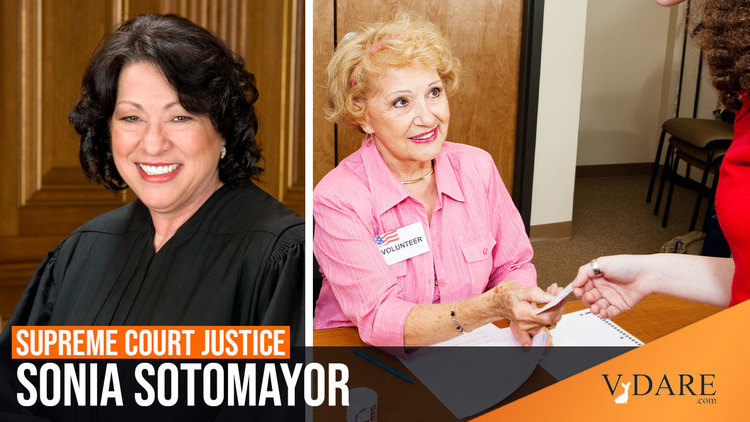
06/23/2022
From: A Talk Radio Listener
The Supreme Court just announced a decision allowing North Carolina’s Republicans to defend voter ID laws in their state from an NAACP lawsuit.
They claim, reasonably enough, that the Democratic Attorney General, Josh Stein, is unwilling to defend Voter ID, and may, in effect, throw the case — as Gray Davis did with California’s Proposition 187 in 1999.
The law was initially voted on in by the public and added to North Carolina’s state Constitution. However, as NBC reports, the "state Legislature passed a law to specify how the provision would work, it was vetoed by Gov. Roy Cooper, a Democrat. But the Legislature overrode his veto, and the measure was enacted."
The NAACP then challenged the measure in court and claimed the law discriminated against black and Hispanic voters, echoing the divisive Democratic rhetoric comparing voter ID laws to a modern Jim Crow.
North Carolina’s GOP argued that Democratic Attorney General Josh Stein wasn’t fully defending the law in the NAACP case. Stein was backed up by lower federal courts but the NC state Speaker of the House of Representatives and the President Pro Tempore of the state Senate said they'd defend the law if Stein wouldn’t and that NC State law grants them the power to do so. They argued that if the Democratic partisan state AG won’t defend the law as written, they'll do it themselves.
In today’s ruling the Supreme Court plainly stated "North Carolina’s legislative leaders are entitled to intervene in this litigation." Justice Gorsuch delivered the court’s opinion with Robert, Thomas, Alito, Kavanaugh, Barret, Breyer, and Kagan agreeing. Justice Sotomayor disagreed and wrote the dissenting opinion.
[BREAKING: Supreme Court rules that GOP lawmakers can defend voter ID law in North Carolina after state AG refuses to uphold it, Post Millennial, June 23, 2022]
This is basic federal civil procedure:
Under Rule 24(a) of the Federal Rules of Civil Procedure, intervention allows a person who is not a party to an action, who has interests in subject of an action to be joined, instead of waiting to be forced into action, if he or she timely applies to the court to intervene, assuming his interest is not adequately represented by one of the parties. This is called "intervention of right." Under Rule 24(b), the court at its discretion may join a person to an action. This is called "permissive intervention."
Only Sotomayor dissented, but she’s not much of a legal scholar. Why didn’t Republicans do this in California re Prop 187? (I just looked at Pete Wilson’s Wikipedia page. He had to take the bar exam four times before he passed, even though he was a graduate of Yale and UC Berkeley law school.)
See earlier letters from the same reader.
This is a content archive of VDARE.com, which Letitia James forced off of the Internet using lawfare.